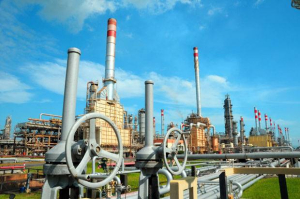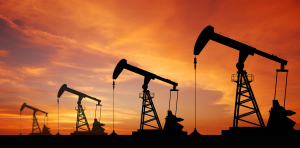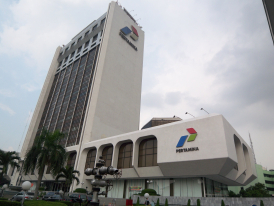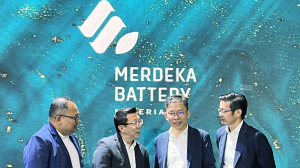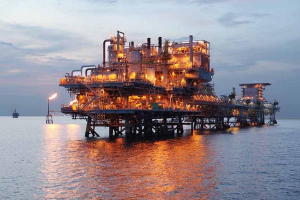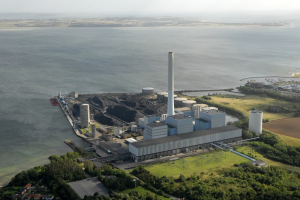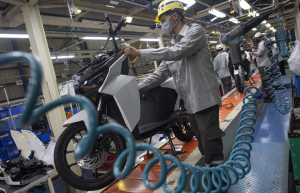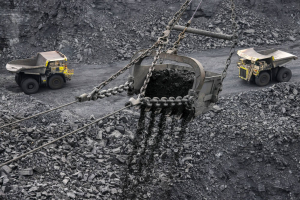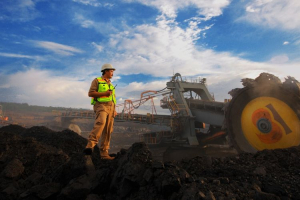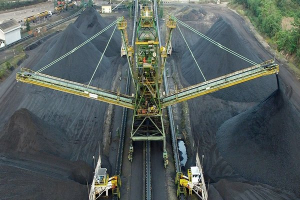#Energy
Harita Nickel makes debut in Indonesia’s biggest IPO this year
Indonesian nickel company Trimegah Bangun Persada, also known as Harita Nickel, marks a new record in its trading debut after raising IDR 10 trillion (US$672 million) in the country’s biggest listing this year on Wednesday (12/4).
Pertamina CEO explains factors leading to fires at refineries
The fire that occurred at the oil refinery owned by state-owned oil and gas company PT Pertamina in Dumai, Riau, added to a long list of a series of fires at Pertamina assets in the last several years.
Saudi Arabia's oil cuts and deals caused world wide geopolitical and economical implications
Saudi Arabia, motivated by economics, held a significant development through oil deals, oil cuts, and became a member of the China-led Shanghai Cooperation Organization (SCO) amidst geopolitical, and economic implications.
A fire broke out at Pertamina’s Dumai refinery raising questions on safety procedures
Nine people were injured, and several houses and houses of worship sustained damage after a fire broke out at the state-owned oil and gas company Pertamina refinery in Dumai, Riau province, on April 1, 2023. Recurring fire incidents at Pertamina fuel processing and storage has raised questions about the management‘s monitoring of safety procedure.
MBMA plans IPO worth IDR 8.75 billion to fund nickel processing projects
PT Merdeka Battery Materials Tbk (MBMA), a nickel mining company, recently initiated its initial public offering (IPO).
Energi Mega Persada is looking for new opportunities in finding additional assets
PT Energi Mega Persada Tbk (ENRG), a publicly listed Bakrie Group company in oil & gas, is looking for opportunities to acquire additional assets to add value to the company's shareholders.
K-pop fans call out to South Korea’s automotive giant Hyundai to withdraw from a planned coal power plant in North Kalimantan.
KPOP4PLANET, a fan-driven climate initiative, along with Indonesian fans of BTS (known as ARMY) wrote an open letter to South Korean automotive company Hyundai to withdraw from their recent agreement with Adaro in which the company invested in a 1.1 GW coal power plant and smelter construction in North Kalimantan.
Eight Electric Motorcycle Companies to Benefit from Government Subsidy Program
Eight electric motorcycle companies had successfully qualified to receive the electric vehicle subsidy from the government. Through the subsidy, the motorcycle companies will receive a subsidy of Rp 7 million for one electric motorcycle unit. The Industry Ministry's director general of metals, machinery, transportation equipment, and electronics industry (ILMATE) Taufiek Bawazier, said that the eight companies had fulfilled the government's condition that requires companies to produce the motorcycle with 40% of local components ratio.
Air Products withdraws from their Indonesian projects following incentive offer from the US
Air Products and Chemical Inc. has decided not to pursue two downstream coal development projects in Indonesia. The company decided to withdraw from its coal gasification into DME collaboration with PT Bukit Asam Tbk (PTBA) and PT Pertamina. It also decided not to continue their engagement in developing methanol gas production facility in cooperation with Bakrie Group companies, PT Kaltim Prima Coal and PT Arutmin Indonesia.
Bukit Asam sets IDR 6.4 trillion Capex for business expansion, investment opportunities
State-owned coal mining company PT Bukit Asam Tbk (PTBA) has budgeted IDR 6.4 trillion (US$ 413.7 million) Capital expenditure (Capex) in 2023, more than double its 2022's Capex of IDR 2.9 trillion, for business expansion and investments in its subsidiaries.
PGN sets US$ 458 million Capex for construction of 400,000 housing gas network
State-owned gas transportation and distribution firm PT Pertamina Gas Negara Tbk (PGAS), more popular as PGN, has set US$ 458 million (IDR 7 trillion) in Capital expenditure (Capex) for 2023 to facilitate the construction of 400,000 gas network for housing.
Indo Tambangraya sets IDR 1.29 trillion Capex for greenfield project
Coal supplier company PT Indo Tambangraya Megah Tbk (ITMG) has budgeted IDR 1.29 trillion (US$ 84.3 million) for its 2023 Capital expenditure (Capex) to support its greenfield project.



